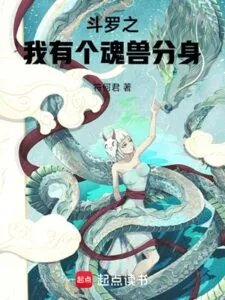Holy Roman Empire - Chapter 524
Chapter 524: Chapter 97, Austria-Poland Conflict
Please continue reading on ΒOXΝʘVEL.ϹΟM .
The British establishment of a food reserve system also impacted the international grain market, and the continually falling grain prices finally stabilized.
However, this was of little use, as the situation of oversupply remained unresolved. Although Russia bore the brunt of the blame for the plummeting grain prices, informed individuals knew that the Vienna Government was also at fault.
As these were informed individuals, they naturally weighed the pros and cons. Scapegoating Russians was inconsequential, even the Tsarist Government itself was accustomed to being criticized.
Austria was different, though—the grain dumping by the Vienna Government in the first half of the year would not have gone so smoothly without the participation of domestic capitalists in various countries.
Once this lid was lifted, the involved interest groups were too substantial to ignore. Few people were willing to take on such an offensive task.
With Christmas approaching, Vienna already had the festive atmosphere. The winter of 1872 in Vienna was unusually warm. There was no snowfall, and even cold winds were rare.
It was at this time that trouble came knocking; on December 21, 1872, the Polish Government issued a demarche to the Austrian Foreign Ministry: demanding that Austria hand over the territories which it had occupied from Poland, or else face the consequences.
Alright, upon receiving this diplomatic note, the Vienna Government was astonished, and Franz was also scared. He truly could not comprehend what terrible consequences there could be.
Franz was aware of the recent surge in anti-Austrian sentiment in Poland, but he didn’t take it seriously; the strong never care about the thoughts of the weak.
In his view, no matter how much noise the Poles made, it was nothing more than shouting slogans at home—at worst, they would submit a few diplomatic protests, and then it would be business as usual.
In efforts to recover the territories partitioned by the Prusso-Russian-Austrian powers, the Polish Government had also made multiple requests to the Vienna Government after its establishment.
Franz understood this behavior; regardless of whether the territories could be recovered, the government had to put on a show, otherwise how could they explain themselves to their people?
The Vienna Government had always ignored the Polish people, acting as if they didn’t exist. What Franz was wholly unprepared for was the Polish Government daring to issue a diplomatic note with such a strong tone.
(vitag.Init = window.vitag.Init || []).push(function(){viAPItag.display(“vi_765923973”)})
This was no small matter; formal diplomatic notes were different from private grumblings, as they required accountability.
There was nothing to be said; Franz immediately convened a Cabinet meeting, prepared to confront the Polish Government’s anger.
“What has provoked the Polish people, or has someone given them the confidence to think they can be so haughty with us?”
Those who understood Franz knew this indicated his anger. Austria had played a part in supporting Poland’s independence behind the scenes, and to have not asked for anything in return was one thing, but now the Polish Government was getting above itself.
Flipping through history books would reveal that the territorial disputes between Austria and Poland were like a bad debt. In such circumstances, the stronger party naturally had the right.
Foreign Minister Weisenberg explained, “Your Majesty, Poland is a major agricultural country. After the outbreak of the agricultural crisis, Poland’s agricultural exports and imports plummeted.
Recently, to cope with the crisis, we raised tariffs on Polish agricultural imports, which caused strong dissatisfaction within the Polish Government.
About 34% of Poland’s agricultural products are exported to Austria, where they are processed and then sold on the international market. After the tariff hike, trade between the two countries in agricultural products has dropped by two-thirds.
This has directly led to massive unsold agricultural products within Poland, causing a severe social crisis. The Polish political situation has already become unstable.
The Polish Government issued its diplomatic note at this time, likely related to their domestic situation. The government might be attempting to divert internal conflicts through this act.”
This was an inevitable issue. With the international market continously shrinking, Austria had no choice but to cut back on production capacity; many capitalists involved in agricultural processing began to transition.
Against this backdrop, it was clear that domestic agriculture needed to be protected, and reducing agricultural imports became inevitable.
Even before the outbreak of the agricultural crisis, the Vienna Government had prepared to abandon the agricultural processing industry. There was simply no alternative, as this industry had little technological content and could only serve as primary industry.
In recent years, agricultural processing enterprises had sprung up like mushrooms in various European countries, intensifying market competition. Austria was able to maintain its dominant position in agricultural processing mainly because it controlled most of the raw grain production capacity.
Clearly, this situation was unsustainable. After the outbreak of the agricultural crisis, countries no longer worried about raw materials for their agricultural processing industries; Austria’s cost advantage had vanished.
Under such circumstances, it made no sense to continue investing in a losing battle. It was better to direct efforts into emerging industries and stimulate the second industrial revolution to widen the gap in strength between nations.
Without focused government support, the high-profit agricultural processing manufacturing industry could still survive, but those in the flour mill sector with low technological content were going to have a hard time.
This was an inevitable result of economic development; enterprises with higher technological content have a more pronounced advantage in competition. Enterprises without technological content can only be trapped in a vicious cycle of price wars, making it difficult to make further progress.
At this time, enterprises either had to transform or undergo technological upgrades, such as developing more new products. The myriad of food items found in future supermarkets were all forced out by reality.
Agricultural product processing enterprises, in order to survive, could not simply process a single product. They had to increase the stages of processing, improve the technological content, and add value to their products.
In the long run, this agricultural crisis also spurred the upgrade of Austria’s agricultural processing industry. The variety of biscuits, canned goods, and various junk foods that appeared on Vienna’s market in 1872 was greater than the total added over the previous five years.
The emergence of these high-value-added products led to a rejuvenation of many enterprises, breathing new life into them. Those enterprises that were slow to react, however, were still struggling mightily.
From the perspective of later generations, the competition of that era was nothing at all. Even the most fiercely competitive flour mills could still make a decent profit as long as they were well managed, far from “losing money to make noise.”
Prime Minister Felix said sternly, “No matter the reason, we must respond strongly to Polish provocation, to show them our strength. If necessary, we can take military action to give the Polish a wake-up call.”
The mention of military action made Franz frown. He felt that the situation wasn’t as simple as it seemed. Even if the Polish had lost their minds, there was no reason for them to provoke Austria.
Before Franz could speak, Finance Minister Carl raised an objection.
“Chastising the Polish is easy, and even conquering Warsaw wouldn’t be difficult. However, what would we gain from it?
The current international situation is not conducive to expansion, and the Kingdom of Poland is extremely poor. Unless we accept Polish agricultural products as compensation, we likely won’t even recoup our military expenses.”
To rush into war fueled by anger is a great taboo in military strategy.
While Polish land wasn’t bad, Franz simply couldn’t muster any ambition for it. After their war of independence, Polish nationalism had risen, making them too difficult to assimilate.
To incur the risks of internal division within the Empire for the sake of land suitable for grain cultivation, was a loss outweighing any gain. That ticking time bomb could belong to anyone but him; Franz refused to keep it at home.
Accepting Polish agricultural products as compensation was even more of a joke. It was like, post-World War I, England and France accepting German industrial goods as debt repayment.
The Germans, through war, had failed to open the markets of England and France for their domestic industry and commerce, but through postwar reparations, they managed to achieve their goal.
England and France, covetous of short-term benefits, paid a heavy price. Due to the influx of cheap German industrial and commercial goods, the industries of both countries declined.
When World War II started, the industry of Germany, as one of the defeated nations, actually surpassed the combined output of England and France, an undeniable irony.
Such folly, the Vienna Government would not commit. It had its hands full protecting its own agriculture and could not afford to overlook the essentials for the sake of meager benefits.
“First, we’ll warn the Polish Government to quell the anti-Austria movement within their borders before Christmas, or else we will hold a parade in Warsaw.”
Lack of interest in Poland didn’t mean a threat of military force was off the table. If the Polish Government really had water on the brain, then Franz wouldn’t mind reluctantly going to war.
However, doing so would benefit the Russians. If Poland were crippled, Franz highly doubted what the Kingdom of Prussia could rely upon in the next Prusso-Russian War.
Neither Alexander II nor Alexander III were easy adversaries, and the Russian Empire’s potential for war far exceeded that of Prussia.
Having made mistakes before, the Russians would not be eager for rash advances. As long as the Tsarist Government was stable and cautious, war would become a war of attrition, which the Kingdom of Prussia could not afford against the Russians.
At this moment, the Kingdom of Poland became crucial. Ruthlessly, if a million cannon fodder could be conscripted from the Kingdom of Poland, then in the face of the ‘grey beasts’, Prussia would not be overwhelmed by the human wave tactics.
There was one certainty Franz was sure of, and that was that this time the Tsarist Government would not lack grain.
Even if the Russian Empire’s transportation issues remained unsolved, the Tsarist Government would stockpile enough strategic materials before the outbreak of war.
This time, the Prussians couldn’t catch the Russians off guard, and until their preparations were complete, the Tsarist Government would not provoke war again.
The Russian-Austrian Alliance still had a few years left. During this time, the Kingdom of Prussia also could not initiate an attack without dragging Austria into it.
Shaking his head, Franz cast aside these muddled thoughts. Why worry so much? The international situation is ever-changing; no one could guarantee what would happen tomorrow.
Perhaps by the time the Prusso-Russian War broke out, the situation would have changed again. Austria’s power was also growing rapidly; perhaps by the time the Prusso-Russian War erupted, Austria would have far outstripped them.
As long as one’s own strength was sufficient, any challenge was insignificant. Perhaps by then, the outcome of the Prusso-Russian War would also become irrelevant to Austria.













